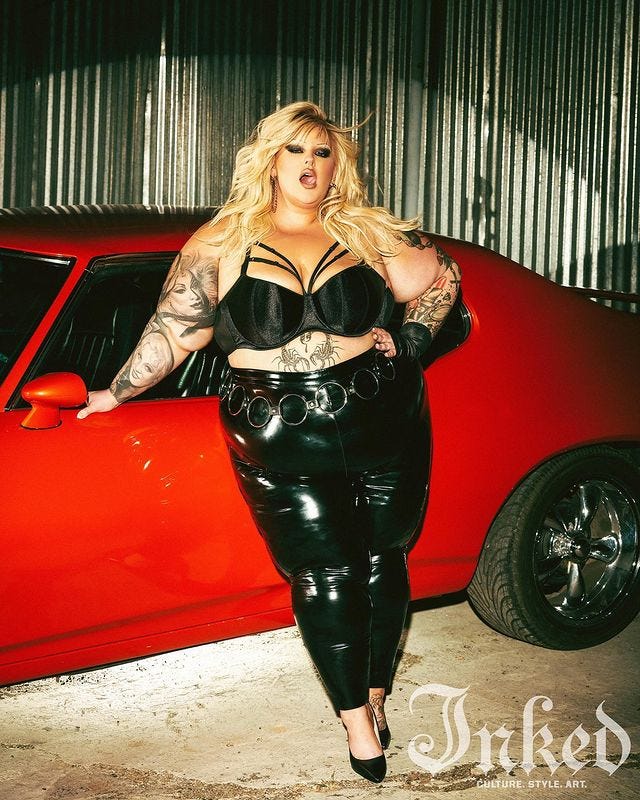On body positivity
The risks of identity politics and how to shift the paradigm for our young people
This might seem like a bit of an off-topic conversation for a newsletter about education. But we do frequently engage with issues that affect young girls. Take for example our warranted interest in the predatory algorithms found on Facebook and TikTok that have been linked to eating disorders and spiralling body image issues in our girls. We have a pastoral role in ensuring that our knowledge is current in this area, sometimes for the boys but mostly for the girls in our care.
But I’m going to talk about a different angle on this. I’m concerned that identity politics have taken the debate too far the other way. I’m of the belief that the radical body positivity movement is equally harmful. I can hear you ask, “What could possibly be bad about loving one’s own body, in whatever shape it takes?” One springs from the kind of extreme identity politics that has stood in for actual activism and social justice progress in the last few decades. Bear with me while I share some of the illogical ideas about Fat Theory from Cynical Theories.
Historically, the scholarship and activism that would go on to become fat studies was called fat feminism. This was strongly associated with the radical and radical-lesbian branches of feminism and consequently had a limited following. This did not change much until the 1990s, when the body positivity movement, which focused on acceptance and celebration of “fat bodies,” emerged from within liberal currents in society. A related Health at Every Size movement, which seems to have existed in various forms since the 1960s, became prominent in 2003 when the Association for Size Diversity and Health trademarked the phrase. In 2010, Linda Bacon, a scholar of physiology and psychotherapy, wrote a popular book called Health at Every Size: The Surprising Truth About Your Weight, which argues that bodies of all dimensions can be healthy. The medical consensus opposes this idea.
Fat studies developed rapidly, began taking on an applied postmodern approach, and soon became thoroughly intersectional, making illogical claims like: “we cannot dismantle weight/size oppression without addressing the intersectionality of all oppressions.” Fat studies’ claim to be an independent discipline was strengthened in 2012, when the journal Fat Studies was founded. The journal explicitly likens negative opinions about obesity—including concerns about possible health implications of being overweight or obese—to prejudice against people for their immutable characteristics, claiming, “Fat Studies is similar to academic disciplines that focus on race, ethnicity, gender, or age.”
Lindsay, James A. Cynical Theories (p. 172). Swift Press. Kindle Edition.
I think some of the issues with this are presented in a fairly obvious way, so let me explain why I care about this and why I think it’s a potential problem for our young women.
My main issue with body positivity and fat feminism is that they operate within an appearance paradigm. What kinds of messages are we sending if our primary identity is based on our physical traits? It seems anti-feminist and counterproductive to centre sexual attractiveness to men as the primary aim. Take the sexualised images of Tess Holliday on Instagram. Explain to me how this subverts any kind of dominant male value system.
Medical science doesn’t support the idea that obesity is a good thing. I know that sounds obvious. There are even cases where unchecked obesity in children constitutes parental neglect. It seems like a taboo area of child protection and I wonder if body positivity politics are feeding into this. Unlike other aspects of identity, weight is for the most part a mutable characteristic, so it’s not entirely appropriate, and possibly a distortion, to align it with other aspects of Queer and Race theory.
I know that my alternative views aren’t for everyone, but I dream of a world where we aren’t having discussions about young women’s bodies at all. I decided to start building muscle mass at 39, knowing I would lose it if I did nothing. Since then, I have become physically stronger every year and completed a half marathon after 41 years on the couch. Can we model strength, endurance and physical capability for our young girls? I’d like to see posts like this as unnecessary and outdated as soon as possible, please.




I don't disagree with anything you say, but it is a complex issue because body positivity is a reaction to genuine cruelty and even, and I know this is an extraordinarily strong word but I think it's accurate, persecution experienced by many of our students based on weight. (This is true of boys as well as girls, incidentally. The number of boys with eating disorders and other body image related mental health issues is still fewer than among girls, but catching up quickly in both North America and Australia. )
As someone who struggles with both weight and body dysmorphia (and am currently celebrating having lost >20 pounds in 2021!), I can attest that it can be very difficult to achieve and maintain a damaging both physical and mental health in the process. Schools have a crucial responsibility sources of health education and as centers of bullying to get the balance right. I'm not sure any researchers or practitioners have found it yet.